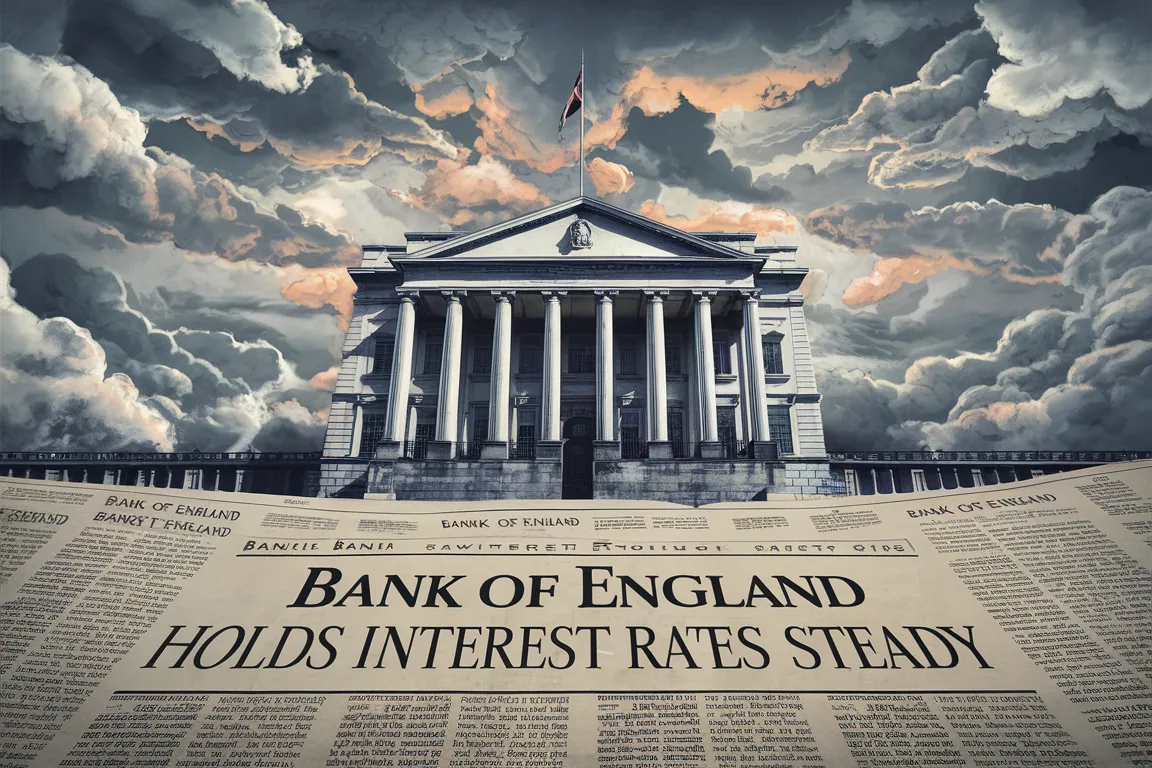The Bank of England recently chose to maintain its principal interest rate at 5.25%, a level not seen in 16 years, ahead of the upcoming UK election. This decision, a result of a 7-2 vote by the BoE's Monetary Policy Committee, was largely anticipated by economists. Interestingly, Deputy Governor Dave Ramsden and external MPC member Swati Dhingra were the only ones advocating for a reduction to 5%.
In a statement accompanying the decision, BoE Governor Andrew Bailey commented, "It’s heartening that inflation has touched our 2% target, but we need confirmation that it will remain steady before slashing rates." His cautious tone contrasts with last month's optimism about future rate cuts. This caution had an immediate impact; the sterling dipped against the U.S. dollar, and British government bond prices declined as investors inferred a higher likelihood of an impending rate cut.
The market's reaction was palpable, with an 88% chance priced in for a quarter-point reduction by September, a notable uptick from 74% prior to the BoE's announcement. This move follows the European Central Bank's earlier decision to begin reducing rates and signals a divergence from the U.S. Federal Reserve, which is not expected to lower borrowing costs until the end of the year.
Economists are divided over the BoE's next steps, with many predicting a rate cut by August. Alpesh Paleja, interim deputy chief economist at the Confederation of British Industry, noted, "We still see an August rate cut on the horizon, but this isn't set in stone. The MPC remains heavily data-dependent, and the evolution of key indicators will be crucial."
This forecast offers little comfort to Prime Minister Rishi Sunak. With the Conservative Party trailing Labour by roughly 20 points in pre-election polls, any rate cut might come too late. While Sunak credits his tenure for the sharp drop in inflation from a 41-year high of 11.1% in October 2022, Labour attributes the high mortgage rates to poor economic management by Sunak's predecessor, Liz Truss. The BoE, however, clarified that the election had no influence on its decision-making.
The BoE foresees inflation exceeding its target as past reductions in energy prices fade from the inflation data. Their forecast holds that inflation will hover around 2.5% in the latter half of 2024. Notably, the MPC minutes revealed that the decision to hold rates was "finely balanced" for some policymakers, hinting at the proximity of potential rate cuts.
Though indicators like wage growth and services inflation have moderated, they remain high. The "finely balanced" members on the rate cut viewed the higher-than-expected May services inflation as an anomaly largely driven by a nearly 10% rise in Britain's minimum wage and annual indexed price adjustments that reflected previous inflation trends.
Conversely, other MPC members felt the elevated services inflation and unexpected wage growth underscored the necessity of keeping rates steady. Services price inflation, having declined less than expected—from 5.3% to 5.7%—and significant private-sector wage growth, nearly double the rate compatible with 2% inflation, continue to raise concerns.
The BoE has maintained a period of silence since the election campaign began, leading to the cancellation of public events. Prior to this, BoE Chief Economist Huw Pill had dismissed the focus on a June rate cut as "ill-advised," while Deputy Governor Ben Broadbent—set to step down at the end of the month—expressed openness to a summer rate cut.
Since December 2021, the BoE has steadily increased rates, reaching the current peak in August 2023 while other major central banks lagged behind. The decision to hold rates steady for now suggests a cautious approach as the BoE waits for more conclusive data before making further adjustments.







